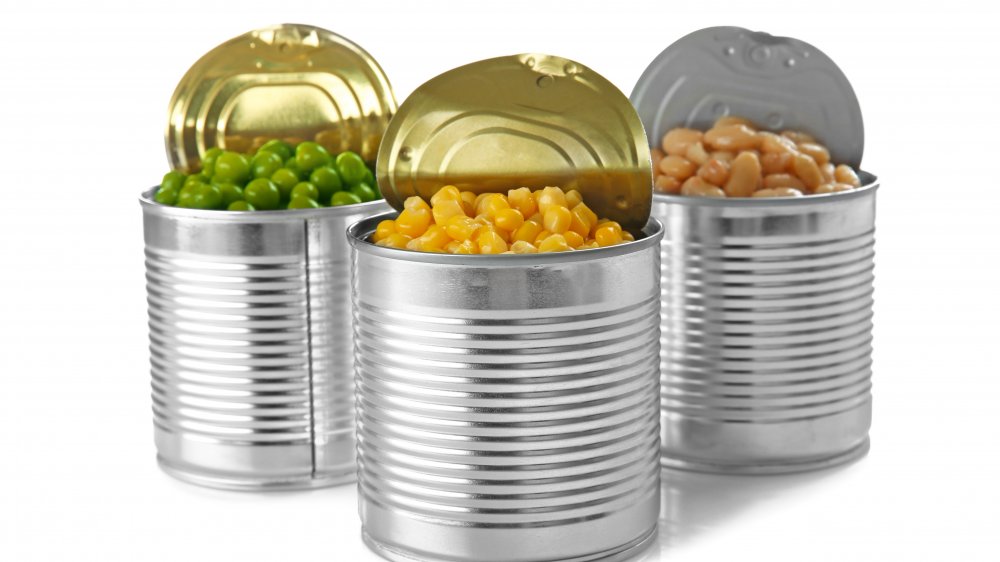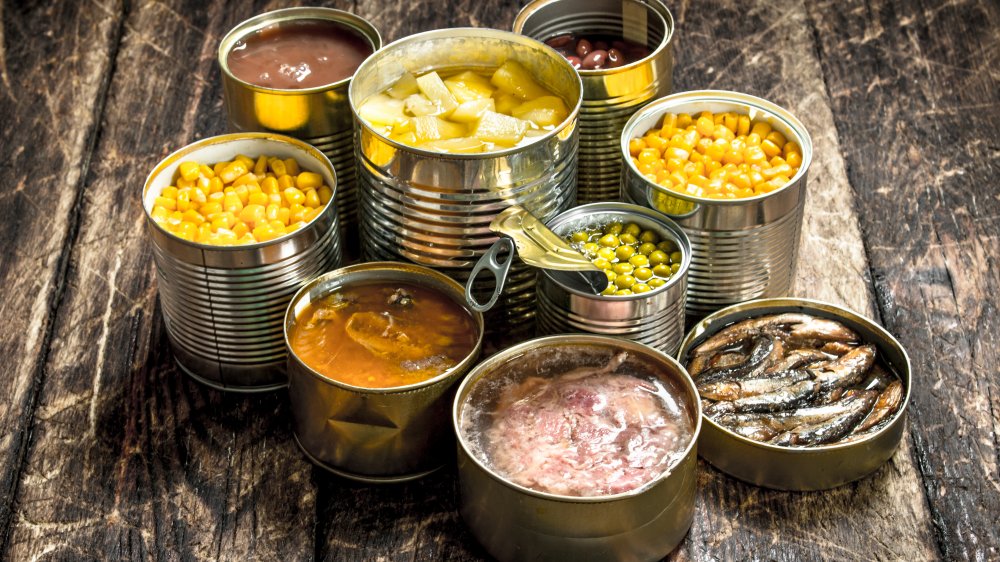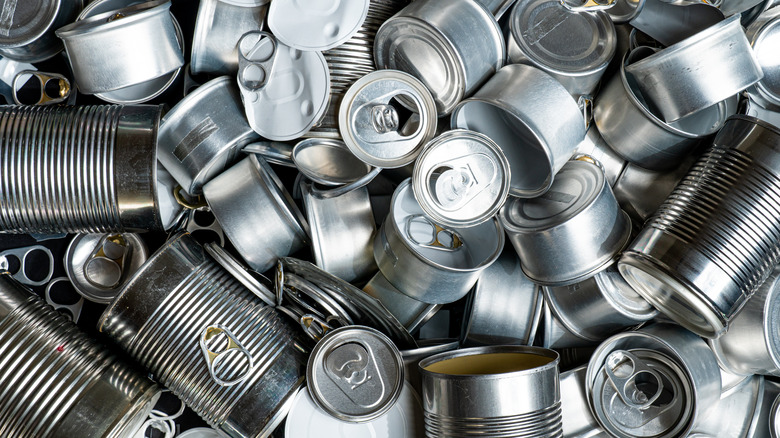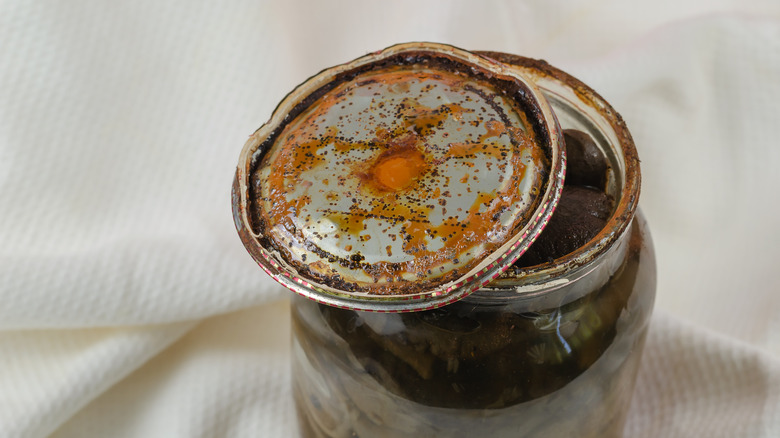The Surprising Truth Of Canned Food Expiration Dates
Canned, or tinned, food is shelf-stable and not at risk for easy spoilage. Unfortunately, food labels are super confusing, contributing to the United States' food waste. An estimated 52.4 million tons of food gets sent straight to the landfill, according to nonprofit organization ReFed. In fact, a 2016 study reports that "... the United States spends over $218 billion — 1.3% of GDP — growing, processing, transporting, and disposing of food that is never eaten." In that spirit, it's time to learn when our canned food is best, or at least still good.
"Best by" or "Sell by" dates aren't FDA-mandated (except for infant formula) and don't have to "mean" anything, explains Today. These are voluntary labels that manufacturers provide. (It should be noted that these aren't the same as expiration dates on deli food items or dairy. You don't want to mix those up.)
Canned foods, however, exist in a vacuum until they're opened. Experts generally agree that canned food is good for two years from processing — when you'll get peak flavor and texture. Canned food after this date should still be edible for quite some time, but the taste of the food can degrade with age, as well as storage at sub-optimal temperatures (room temperature is fine).
How to tell if canned food has gone bad
Instead of discarding cans by the printed date, look for signs that your can may have gone bad — no matter what their age is, suggests Dummies. Canned food should still look like the food you purchased. (For example, corn niblets in water shouldn't look like cloudy creamed corn in sauce.)
Any extra mushiness, moldiness, or cloudiness is a sign your food has gone bad. An unpleasant smell is also an indicator of spoilage. Red flags include physical damage to the can, such as corrosion, bulging lids, or broken seals.
Your internal danger signs should be flashing brightly if you open a standard canned product and it has any kind of bubbling spurting, oozing, or gassiness. (It's a canned food, not a soda.) If your canned food doesn't have any red flags, you're probably okay (although that doesn't mean food from older cans will taste good). Use your best judgment, but don't depend on that printed date on the product. Your budget — and your planet — will thank you.
How to dispose of expired canned goods safely
If you find a bad can of food in the back of your kitchen cabinet, the obvious thing to do is throw it away. But is tossing it right into the trash can all there is to it?
A question posed to the Sierra Club Magazine asked just this: How can one dispose of canned goods in a way that's safe for the environment and for those around you? The answer was that one should open the canned goods and dump the contents into a proper receptacle (the Sierra Club suggests a compost pile) before washing the cans and placing them in the recycling bin. The Sierra Club warns against tossing unopened cans of food into the trash, as it causes problems in the recycling process and adds to the hauling weight.
If your canned goods are leaking or draining, the National Center for Home Food Preservation instructs consumers to "detoxify" the cans by submerging them in a pot of boiling water for 30 minutes to kill any harmful bacteria before tossing the can.
What is botulism?
A damaged or misshapen can (such as one that looks dented) is a clear sign that it's time to toss the can out, as it may be tainted with botulism. But what is botulism, exactly, and how do you know if you have it?
The CDC describes botulism as a "rare but serious illness caused by a toxin that attacks the body's nerves." The spores these bacteria create are what causes illness, thriving in places that are low in oxygen, acid, sugar, and have a certain criteria in water and temperature. Damaged canned goods or improperly-stored preserved foods serve as the perfect breeding grounds for these spores, which multiply over time.
Symptoms of foodborne botulism, according to the Mayo Clinic, include "trouble breathing," "facial weakness on both sides of the face," "drooping eyelids," "blurred or double vision," "trouble speaking," and in extreme cases, "paralysis." Should someone have mistakenly consumed tainted food and contracted the disease, it's recommended they get immediate medical care; the earlier symptoms are noticed, the higher the chances of survival. Botulism can be treated with antitoxins, the CDC explains.



